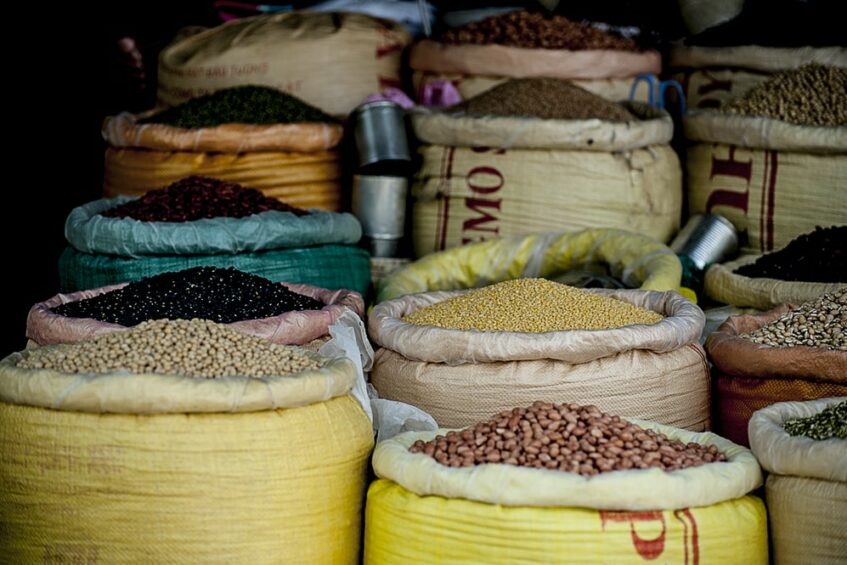
Food commodities on display. | Courtesy.
The prices of popular products such as food commodities imported into the East Africa region are set to increase after a newly raised tariff charge took effect on Saturday.
East African Community Council of Ministers adopted a resolution in May 5th to increase the Common External Tariff to 35%.
A common external tariff is an import fee applied equally by each country participating in a customs union.
The Council struck the deal to increase taxation on imports into the bloc by non-member-states by 35%, effective as of 1st July.
The bloc’s Member States resolved to levy high taxes on vital commodities like meat, grain, beverages and textiles, in a bid to shield local industries from competition.
In a Customs alert seen by Eye Radio, the implementation of the reviewed Common External Tariff is allegedly to empower local industries from competition arising from cheap imports.
“The Council finally approved a maximum rate of 35% on 5 May 2022 during the Ministers retreat on the comprehensive review of the EAC CET,” quoted the new custom alert.
“Products covered under the 35% tariff band include: dairy and meat products, cereals, cotton and textiles, iron and steel, edible oils, beverages & spirits, furniture, leather products, fresh -cut flowers, fruits,
“And nuts, sugar and confectionery, coffee, tea and spices, textiles and garments, head gears, ceramic products and paints, among others.”
The EAC Customs Union Protocol established that a 3 band common external tariff is in effect, with 10% taxation on intermediate goods and 25% percent on finished goods.
But taxation on raw materials and capital goods has not been increased.
However, the increase is feared to have a significant impact on prices of finished goods considering other domestic taxes which would affect the purchasing power of citizens.
Kenya, Uganda and Tanzania proposed 35% while Burundi and Rwanda were for 30% as a maximum Common External Tariff rate.
However, researchers believe the resolution will backfire on the region, given the limited capacity of local industries to satisfy the high demand, at a time of global food crisis.
The Economic Policy Research Center, a Uganda based think-tank established last month, that the country’s demand for edible oils stood at 120,000 metric tonnes, yet the domestic production was at 40,000 metric tonnes.
This, the center said indicates that the country does not have sufficient capacity to produce and satisfy the local demand for some of the said products.
“Import tariffs may not create significant changes in the import value, especially for a small economy like Uganda, but rather a loss in welfare. This is because the tariffs increase the price of imported inputs and in turn increase the price of locally produced goods,” reads part of the think-tank statement.
Uganda Investment Authority was also quoted as saying the country needs more investors in that area to boost local capacity.
It is not clear whether the local manufacturers are capable of adjusting production in the short-term to meet the possible increase in domestic demand.
The stance of South Sudan, one of the least industrial states in the region is not determined, and the national Revenue Authority were not immediately available for comment.
Support Eye Radio, the first independent radio broadcaster of news, information & entertainment in South Sudan.
Make a monthly or a one off contribution.
Copyright 2024. All rights reserved. Eye Radio is a product of Eye Media Limited.